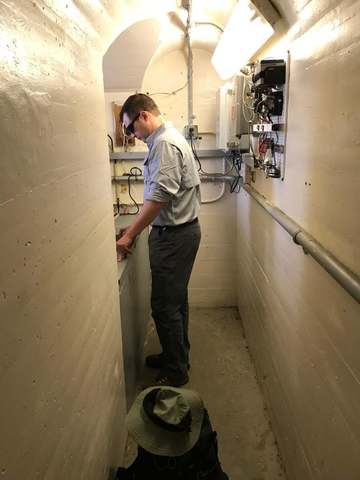Why should you use a data logger as an RTU in your SCADA system?
par Eric Schmidt | Mis à jour le : 10/21/2024 | Commentaires : 0

In today’s world of industrial automation, the ability to remotely monitor and control operations is more critical than ever. Imagine managing a water treatment plant, an electrical grid, or an environmental monitoring system from miles away—all without missing a beat to ensure smooth, efficient operations. That’s the power of Supervisory Control and Data Acquisition (SCADA) systems run by Remote Terminal Units (RTU) to reliably gather and transmit real-time, critical data from remote locations.
You might be aware that Campbell Scientific data loggers play a role in data-acquisition systems (DAQ), but did you know that these devices are also ideal RTUs in your SCADA environments? Let’s explore how their precision, durability, and control capabilities can work well for you!
Accurate Data Collection
When it comes to reliability in data collection, our data loggers are unmatched. They gather precise measurements from both environmental and industrial sources over extended periods, making them well-suited for SCADA applications. Unlike RTUs that record data only when triggered by events, our data loggers provide continuous monitoring, ensuring real-time access to critical information and a comprehensive historical dataset for in-depth trend analysis.
Designed for Harsh Environments
RTUs often operate in remote or challenging conditions, and our data loggers excel in such scenarios. Whether they are exposed to extreme temperatures, high moisture levels, or dusty environments, they perform consistently. When you house these devices in weather-resistant enclosures, you can deploy them in the toughest environments—from oil fields and agricultural sites to the top of Mount Everest.
Our data loggers are also energy efficient. In remote areas where power might be scarce, these devices can run on battery power and solar panels, keeping them operational even when there's no access to a stable power grid.
Seamless Communication
Effective communication between remote sites and central control systems is crucial for SCADA systems. Our data loggers come with advanced communications features that support popular SCADA protocols such as DNP3, Modbus RTU, and Modbus TCP/IP. In addition, these devices can communicate via radio, cellular networks, or satellite. This adaptability helps ensure that no matter where the data loggers are located, they can transmit your necessary data.
Data Redundancy and Reliability
In SCADA systems, data integrity is essential. If the SCADA network goes down, the data loggers continue collecting and storing data, thanks to their large internal memory. After communication is restored, they transfer the stored data, ensuring that nothing is lost. This built-in redundancy ensures that you always have the information you need—even during network interruptions.
Flexibility and Scalability
One standout feature of our data loggers is their versatility. You can deploy them in both small-scale and large systems, making them suitable for a wide range of applications. These devices trigger alarms or alerts when critical thresholds (such as high temperatures or low pressure) are breached, enabling you to respond to potential issues in real time.
Another flexibility benefit is your ability to remotely configure our data loggers. You can adjust the settings, calibrate your sensors, and even update the firmware from anywhere, which is invaluable when your systems are spread across multiple hard-to-reach locations.
In Summary
Campbell Scientific data loggers offer much more than just measurement capabilities. Their precision, durability, and advanced communications options make them strong candidates for RTUs in SCADA systems. By choosing these devices, you can build scalable, reliable, and efficient systems that perform even in the most challenging environments. Moreover, these devices provide a flexible solution where accuracy and long-term reliability are essential.
If you’d like to explore how a data logger-based RTU can enhance your SCADA system, please connect with our application engineers or sales team. We’re here to help you find the perfect solution for your needs.




 Eric Schmidt is an Application Engineer in the Infrastructure Group at Campbell Scientific, Inc. He works with customers on the technical aspect of building measurement systems; helps provide trainings for all of Campbell Scientific’s international offices; and attends conferences related to dams, mines, and geotechnology. He received his bachelor’s degree in biological engineering from Utah State University. In his spare time, he enjoys canyoneering and composing music.
Eric Schmidt is an Application Engineer in the Infrastructure Group at Campbell Scientific, Inc. He works with customers on the technical aspect of building measurement systems; helps provide trainings for all of Campbell Scientific’s international offices; and attends conferences related to dams, mines, and geotechnology. He received his bachelor’s degree in biological engineering from Utah State University. In his spare time, he enjoys canyoneering and composing music.
Commentaires
Please log in or register to comment.